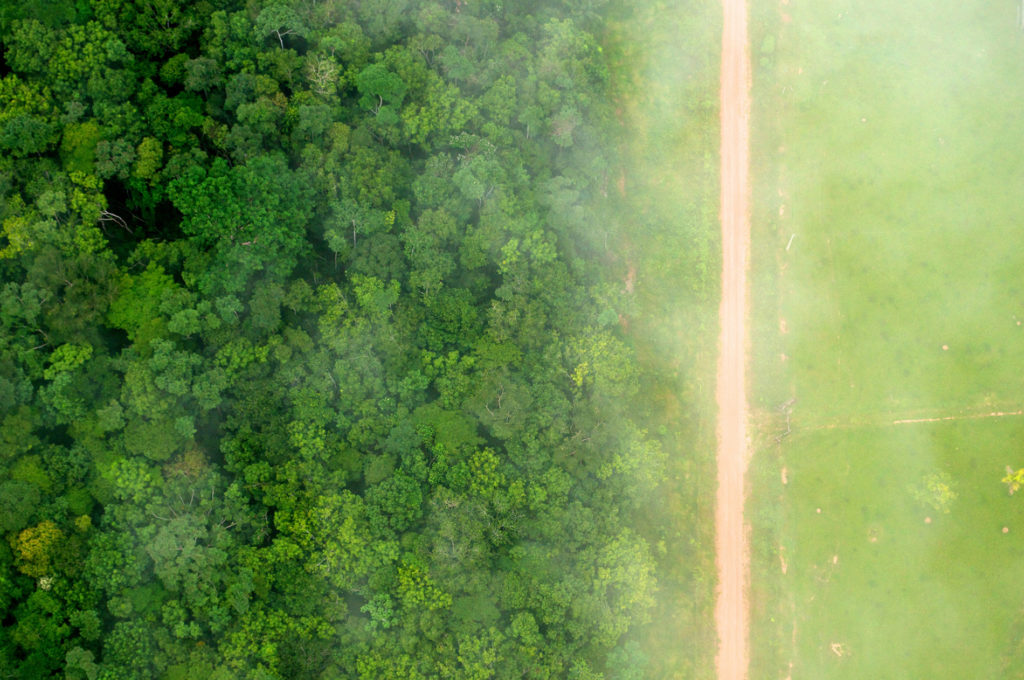On the International Day of Forests we invite you to identify entry points Swedish actors can use to help reduce tropical deforestation.
Stopping tropical deforestation is a global challenge. While global commitments have the ambition to halve, or even halt deforestation within just a few years, the latest numbers show an increasing trend in forest loss. At the same time, there is a growing international discussion on how both public and private actors can step up the fight against tropical deforestation. Recent research have highlighted how Sweden contributes to the pressure on the world’s remaining tropical forests, for instance through imports of agricultural commodities, such as palm oil, beef and soybeans, and financial investments in companies linked to forest clearing.
Through a constructive dialogue between representatives from government, the private sector, civil society and academia, we hope that we jointly can identify and formulate concrete steps that different Swedish actors can take to reduce global tropical deforestation and find ways for continued collaboration on this shared challenge.
Cases: The seminar will look at the main global drivers behind tropical deforestation and review mitigation measures that can be implemented at different levels by a range of actors. In addition, current developments in Brazil and Indonesia will be highlighted to link actions and policy developments with local realities. For countries like Brazil and Indonesia, where poverty rates are high, agricultural expansion to satisfy local, regional and global markets is seen as a way to develop national economies and improve local socio-economic conditions. Finding feasible sustainable development pathways, to halt deforestation while ensuring economic and social sustainability, is thus crucial.
Watch video with the presentations during the first session:
Watch video with the presentations from the second session:
Agenda:
10.45 – 11.00 Registration 11.00 – 12.00 First session
- Welcome note. Madeleine Fogde, Director SIANI and Maria Ölund, Coordinator Focali
- Introduction to the dialogue and overview of main deforestation drivers and trends. Martin Persson, Associate Professor Chalmers University of Technology and member of Focali
- Policy development in Sweden and EU related to deforestation. Emilie Molin, Desk officer, Division for forest and climate, Ministry of Enterprise and innovation of Sweden
- Promoting forest values to combat deforestation and to restore degraded landscapes. Anders Malmer, International Coordinator Swedish Forest Agency and Professor in Tropical Forestry SLU
- The role of civil society – lessons from Indonesia. Maria Rydlund, Senior Policy Officer Tropical Forest at Swedish Society for Nature Conservation
- Questions to the first session
12.00 – 12.50 Lunch 12.50 – 13.30 Second session
- The Accountability Framework – accelerating progress on deforestation-free supply chain commitments. Adrienne Stork, Senior Program Manager, Supply Chain Accountability, Rainforest Alliance Washington D.C. (via link)
- Insights from current developments in the Amazon and the role of land-rights, transparency of value chains, certifications and Zero-deforestation initiatives. Mairon Bastos Lima, Postdoctoral Researcher with TRASE and Chalmers University of Technology and member of Focali
- The role of the finance sector – lessons from dialogues with financial giants. Beatrice Crona, Executive Director, of the Global Economic Dynamics and the Biosphere Programme, Royal Swedish Academy of Sciences and Alice Dauriach, PhD candidate, Global Economic Dynamics and the Biosphere, Royal Swedish Academy of Sciences and Stockholm Resilience Centre at Stockholm University
- Examples of how Agroforestry and REDD+ can reduce tropical deforestation and improve livelihoods. Anna Tjärvar, Forestry Officer, Food & Agriculture Organization of the United Nations (FAO) seconded from Sida
- Questions to the second session & introduction to facilitated group work
13.30 – 14.30 Group work: Stepping up Swedish action on tropical deforestation 1) Identification and formulation of concrete steps that different Swedish actors can take to reduce global tropical deforestation and support local sustainable development pathways. 2) Documentation and prioritization of possible steps in different sectors 3) Encouragement of actors who are willing to lead / be involved in identified steps 14.30 – 15.00 Joint discussion on ways forward Reporting back from group work and how to take the identified steps forward in continued dialogue and concrete actions. Expression of interest from different actors who are willing to take the lead on or be involved in identified steps. 15.00 – 15.30 Coffee and continued discussions
The event is organized by Focali, SIANI and GMV and is part of a dialogue series on global tropical deforestation initiated by Focali and partners in December 2018 with the first event “Dialogue meeting on the future of the Brazilian Amazon”.
